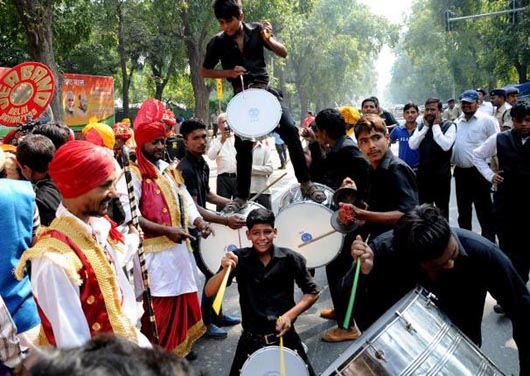
Mumbai, Oct 20: For the first time in the history, people of Haryana and Maharashtra states have geared up to witness the rule of the Bharatiya Janata Party (BJP) chief ministers. The party won a majority in Haryana, and in Maharashtra, it has emerged as the single largest party.
The party’s gamble of contesting alone in Haryana and snapping ties with its oldest ally, Shiv Sena, in Maharashtra have paid off. The results strengthen the hand of Prime minister Narendra Modi, who, along with BJP president Amit Shah, scripted the risky strategy in the first round of state elections after the Lok Sabha victory in May. Elections in Jammu and Kashmir and Jharkhand are due in a few months and the party may consider a mid-term election in Delhi, now under central rule.
“For those who thought the Modi wave is over, this is proof that it's still a tsunami that can crush all competition. People of India consider Narendra Modi their undisputed leader,” said Mr Shah, whose micro-management of election campaigns has become a defining character of the BJP along with the oratory of Mr Modi. The results will also mean less power for state leaders of the party, increasingly dominated by the national leadership.
However, failure to win a simple majority in Maharashtra left the BJP with a sense of incompleteness, though with twice as many seats as the Shiv Sena, the nearest opponent, it has established its primacy in the state for the first time. The Congress and the NCP were left far behind, with 42 and 41 seats respectively.
With Maharashtra and Haryana under the saffron flag, the BJP would now have six chief ministers, controlling large states. Alliance partners lead governments in Punjab and Andhra Pradesh. The BJP’s efforts to dictate the terms of engagement with allies got a further fillip with these results.






Comments
Add new comment